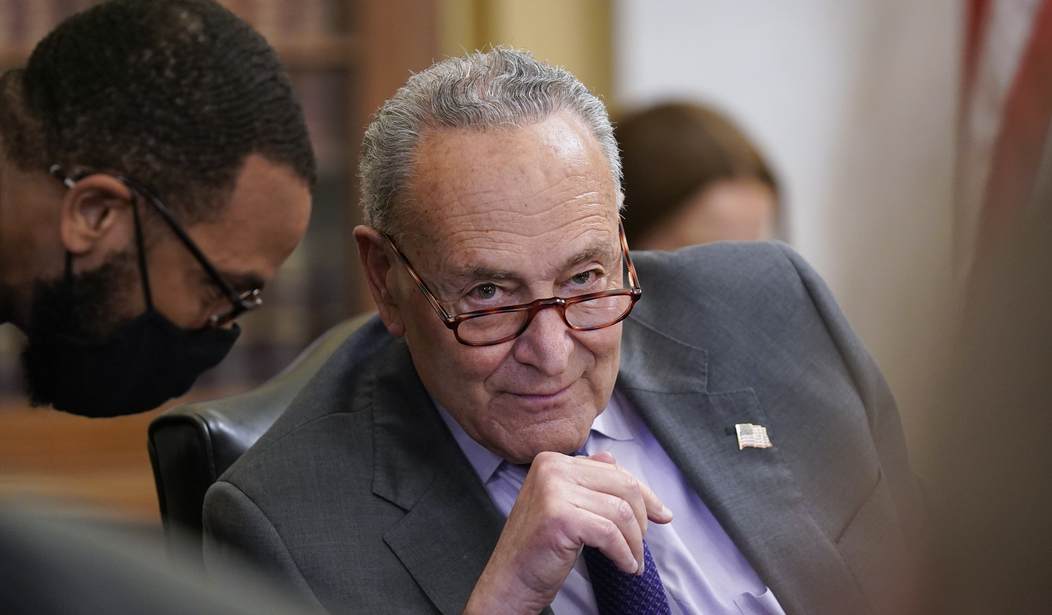It’s starting to look like Democrats will reach some kind of agreement on the Build Back Better bill next week. Despite the best efforts of Sen. Sanders, Sen. Manchin is going to get the last word on the size of the bill with Sen. Sinema also having a say in the taxes that will be part of it.
That outcome may be good enough for some of the more moderate members of the party who really just want something over which they can proclaim victory at this point, but Slate‘s senior editor Jordan Weissman has a piece today saying that the reduced spending in the bill means Democrats have a choice to make between doing a few things well or doing lots of things badly. He thinks the latter group appears to be winning and that means no one is really going to be happy with the results.
As the party began trying to piece together its big social spending and climate package, a split emerged between lawmakers who wanted to pass fewer programs (but do them well) and those who wanted to pass more programs (even if it means doing them poorly). A big part of this argument boiled down to how long policies should be funded for. The less-is-more crowd, dominated by party moderates, wanted to set policies in place permanently. The more-for-less brigade, dominated by progressives, wanted to fund programs temporarily in order to make their budget math work, essentially rolling the dice on the idea that they’d be renewed before they sunset.
At the moment, the side intent on doing lots of things poorly in order to check off items on its to-do list appears to be winning the argument, hands down. And as a result, the bill quickly seems to be degenerating into a pricey heap of policy trash, much of which will probably blow away within a few years.
He offers a couple of examples. For instance a plan to offer parents 12-weeks of leave when they have a child is being dropped to four weeks. Another example, instead of making Obamacare subsidies permanent, they are talking about extending them for 3 more years. He concludes: “Democrats appear to be squandering a historic opportunity to make permanent fixes to America’s social safety net, in favor of a scattershot effort to make all of their constituencies at least a little bit happy for a few years.”
While Slate is basically blaming progressives for refusing to narrow down their priorities as their spending budget drops, over at the Philadelphia Inquirer, Will Bunch writes that Democrats are about to blow it with younger, more progressives voters by not delivering on the things they care about.
The last week of headlines — that free community college is completely dropped from the Democrats’ economic plan and that a Democratic senator has ripped the guts out of its climate strategy, along with the Godot-like wait for major action on student debt — has shaken many teen and 20-something voters who hoped for more…
The irony is that growing signs of failure, or underwhelming results at best, on those issues that matter to young voters — Klein cited the environment and income inequality in particular — could destroy the electability of Biden-allied Democrats in the 2022 midterms. The nightmare scenario for the party, and yet one that seems to be brewing, is a repeat of the 2008 and 2010 cycles in which young voters energized by Barack Obama’s “HOPE” message helped deliver a Democratic government, only to see a mix of apathy, complacency and disillusionment in 2010 as the GOP gained 63 House seats.
At first glance these two takes seem to be taking opposite tacks. Weissman is arguing that progressives need to narrow their goals and Bunch is arguing they need to demand more. But there’s a sense in which they are both issuing the same warning, i.e. the BBB bill as it is currently solidifying is going to disappoint a lot of people and that could mean serious consequences for Democrats over the next few years.
I’m sure people will disagree with both of these arguments but it seems to me they are on to something. Democrats didn’t win in 2020 because of overwhelming love for Joe Biden. They won because all factions of the party agreed they wanted anyone but Trump. Maybe they’ll be able to recreate that coalition in 2024 if Trump runs again but I don’t see how that’s going to work next year. At present, this mega-bill is likely to be the best thing they can point to as a reason to vote for Democrats next year so if they don’t really deliver, they are cooked. But thanks to Manchin and Sinema they’re not going to be able to deliver everything for everyone. Some portion of the coalition is going to be disappointed with the outcome and that’s not good news for the Democratic party.








Join the conversation as a VIP Member